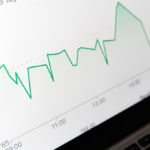Social media platforms have become a part of our daily lives, providing us with a convenient way to connect and share information. While social media has many benefits, it also has a dark side that users need to be aware of. Cybercriminals have found ways to exploit social media, using it to steal personal information, spread malware, and conduct phishing attacks. In this blog post, we’ll explore the risks associated with social media and provide remedies to protect yourself online.
Risks of Social Media:
Social media platforms collect a wealth of personal details from their users, which can be used by cybercriminals for malicious purposes. Some of the most common risks associated with social media include:
Identity Theft
Social media users often share personal information such as their full name, date of birth, and location, which can be used by cybercriminals to create fake accounts, apply for loans, or make unauthorized purchases. Some users even share these details publicly which can put them at risk of other in-person crimes.
Phishing Scams
Cybercriminals use social media to conduct phishing attacks, which involve tricking users into providing their personal information. They often create fake login pages that look identical to the legitimate ones, prompting users to enter their credentials. Once obtained, this information can be used for identity theft or other malicious purposes.
Malware Attacks
Social media platforms are a prime target for malware attacks, as cybercriminals can easily spread infected links or files through messages or posts. Malware can cause a variety of issues, from stealing personal information to taking over the device. Businesses should have an information security program to help protect computer systems when they do get attacked. Being aware of how viruses spread can help prevent or reduce the attacks in the first place.
Fake Profiles
Cybercriminals often create fake profiles on social media platforms, using stolen images and information to appear legitimate. These fake profiles are used to target unsuspecting users, often with malicious intent.
Remedies for Online Security:
Fortunately, there are several steps that social media users, including businesses, can take to protect themselves from these risks:
- Use Strong Passwords: Strong passwords that are difficult to guess can help prevent cybercriminals from accessing your account. Avoid using obvious passwords, such as your name or birthdate, and consider using a password manager to keep track of your passwords.
- Enable Two-Factor Authentication: Two-factor authentication adds an extra layer of security to your social media account, requiring a second verification step after entering your password. This can prevent cybercriminals from gaining access to your account even if they have your password.
- Be Cautious of Suspicious Messages: Cybercriminals often use social media to send messages with malicious links or attachments. Be cautious of messages from unknown senders or messages that seem suspicious in any way.
- Be Selective About Who You Add as a Friend: Only add people you know and trust on social media platforms. Cybercriminals often use fake profiles to target unsuspecting users, so it’s important to be selective about who you allow into your network. As a business, make sure you teach your social media team good habits so they don’t accidentally get sucked into a scam.
- Use a Virtual Private Network (VPN): A VPN encrypts all internet traffic and masks the user’s IP address, making it much harder for cybercriminals to intercept personal information. Using a VPN is an effective way to protect your online privacy and security.
- Update Your Privacy Settings: Make sure to review and update your social media privacy settings regularly. This can help prevent cybercriminals from accessing your personal information and limit the amount of information that is publicly available on your profile.
- Be Careful What You Share: Think twice before posting personal information or sensitive content on social media. Cybercriminals can use this information to target you or steal your identity.
Social media has many benefits, but it also has a dark side that users need to be aware of. Cybercriminals use social media platforms to steal personal information, spread malware, and conduct phishing attacks. By taking the necessary precautions and implementing the remedies outlined in this blog post, users can avoid many of the issues that come from nefarious and bad actors online.








